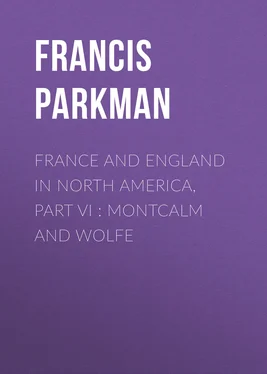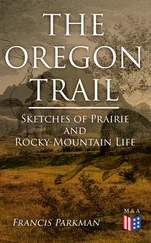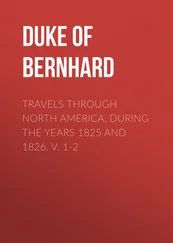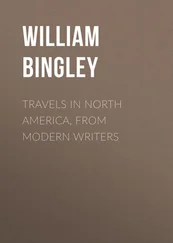Francis Parkman - France and England in North America, Part VI - Montcalm and Wolfe
Здесь есть возможность читать онлайн «Francis Parkman - France and England in North America, Part VI - Montcalm and Wolfe» — ознакомительный отрывок электронной книги совершенно бесплатно, а после прочтения отрывка купить полную версию. В некоторых случаях можно слушать аудио, скачать через торрент в формате fb2 и присутствует краткое содержание. Жанр: foreign_prose, История, foreign_edu, foreign_antique, на английском языке. Описание произведения, (предисловие) а так же отзывы посетителей доступны на портале библиотеки ЛибКат.
- Название:France and England in North America, Part VI : Montcalm and Wolfe
- Автор:
- Жанр:
- Год:неизвестен
- ISBN:нет данных
- Рейтинг книги:5 / 5. Голосов: 1
-
Избранное:Добавить в избранное
- Отзывы:
-
Ваша оценка:
- 100
- 1
- 2
- 3
- 4
- 5
France and England in North America, Part VI : Montcalm and Wolfe: краткое содержание, описание и аннотация
Предлагаем к чтению аннотацию, описание, краткое содержание или предисловие (зависит от того, что написал сам автор книги «France and England in North America, Part VI : Montcalm and Wolfe»). Если вы не нашли необходимую информацию о книге — напишите в комментариях, мы постараемся отыскать её.
France and England in North America, Part VI : Montcalm and Wolfe — читать онлайн ознакомительный отрывок
Ниже представлен текст книги, разбитый по страницам. Система сохранения места последней прочитанной страницы, позволяет с удобством читать онлайн бесплатно книгу «France and England in North America, Part VI : Montcalm and Wolfe», без необходимости каждый раз заново искать на чём Вы остановились. Поставьте закладку, и сможете в любой момент перейти на страницу, на которой закончили чтение.
Интервал:
Закладка:
French America had two heads,—one among the snows of Canada, and one among the canebrakes of Louisiana; one communicating with the world through the Gulf of St. Lawrence, and the other through the Gulf of Mexico. These vital points were feebly connected by a chain of military posts,—slender, and often interrupted,—circling through the wilderness nearly three thousand miles. Midway between Canada and Louisiana lay the valley of the Ohio. If the English should seize it, they would sever the chain of posts, and cut French America asunder. If the French held it, and entrenched themselves well along its eastern limits, they would shut their rivals between the Alleghanies and the sea, control all the tribes of the West, and turn them, in case of war, against the English borders,—a frightful and insupportable scourge.
The Indian population of the Ohio and its northern tributaries was relatively considerable. The upper or eastern half of the valley was occupied by mingled hordes of Delawares, Shawanoes, Wyandots, and Iroquois, or Indians of the Five Nations, who had migrated thither from their ancestral abodes within the present limits of the State of New York, and who were called Mingoes by the English traders. Along with them were a few wandering Abenakis, Nipissings, and Ottawas. Farther west, on the waters of the Miami, the Wabash, and other neighboring streams, was the seat of a confederacy formed of the various bands of the Miamis and their kindred or affiliated tribes. Still farther west, towards the Mississippi, were the remnants of the Illinois.
France had done but little to make good her claims to this grand domain. East of the Miami she had no military post whatever. Westward, on the Maumee, there was a small wooden fort, another on the St. Joseph, and two on the Wabash. On the meadows of the Mississippi, in the Illinois country, stood Fort Chartres,—a much stronger work, and one of the chief links of the chain that connected Quebec with New Orleans. Its four stone bastions were impregnable to musketry; and, here in the depths of the wilderness, there was no fear that cannon would be brought against it. It was the centre and citadel of a curious little forest settlement, the only vestige of civilization through all this region. At Kaskaskia, extended along the borders of the stream, were seventy or eighty French houses; thirty or forty at Cahokia, opposite the site of St. Louis; and a few more at the intervening hamlets of St. Philippe and Prairie à la Roche,—a picturesque but thriftless population, mixed with Indians, totally ignorant, busied partly with the fur-trade, and partly with the raising of corn for the market of New Orleans. They communicated with it by means of a sort of row galley, of eighteen or twenty oars, which made the voyage twice a year, and usually spent ten weeks on the return up the river. 3 3 Gordon, Journal , 1766, appended to Pownall, Topographical Description . In the Dépôt des Cartes de la Marine at Paris, C. 4,040, are two curious maps of the Illinois colony, made a little after the middle of the century. In 1753 the Marquis Duquesne denounced the colonists as debauched and lazy.
The Pope and the Bourbons had claimed this wilderness for seventy years, and had done scarcely more for it than the Indians, its natural owners. Of the western tribes, even of those living at the French posts, the Hurons or Wyandots alone were Christian. 4 4 "De toutes les nations domiciliées dans les postes des pays d'en haut, il n'y a que les hurons du détroit qui aient embrassé la Réligion chretienne." Mémoirs du Roy pour servir d'instruction au S r . Marquis de Lajonquière .
The devoted zeal of the early missionaries and the politic efforts of their successors had failed alike. The savages of the Ohio and the Mississippi, instead of being tied to France by the mild bonds of the faith, were now in a state which the French called defection or revolt; that is, they received and welcomed the English traders.
These traders came in part from Virginia, but chiefly from Pennsylvania. Dinwiddie, governor of Virginia, says of them: "They appear to me to be in general a set of abandoned wretches;" and Hamilton, governor of Pennsylvania, replies: "I concur with you in opinion that they are a very licentious people." 5 5 Dinwiddie to Hamilton , 21 May , 1753. Hamilton to Dinwiddie ,— May , 1753.
Indian traders, of whatever nation, are rarely models of virtue; and these, without doubt, were rough and lawless men, with abundant blackguardism and few scruples. Not all of them, however, are to be thus qualified. Some were of a better stamp; among whom were Christopher Gist, William Trent, and George Croghan. These and other chief traders hired men on the frontiers, crossed the Alleghanies with goods packed on the backs of horses, descended into the valley of the Ohio, and journeyed from stream to stream and village to village along the Indian trails, with which all this wilderness was seamed, and which the traders widened to make them practicable. More rarely, they carried their goods on horses to the upper waters of the Ohio, and embarked them in large wooden canoes, in which they descended the main river, and ascended such of its numerous tributaries as were navigable. They were bold and enterprising; and French writers, with alarm and indignation, declare that some of them had crossed the Mississippi and traded with the distant Osages. It is said that about three hundred of them came over the mountains every year.
On reaching the Alleghany, Céloron de Bienville entered upon the work assigned him, and began by taking possession of the country. The men were drawn up in order; Louis XV. was proclaimed lord of all that region, the arms of France, stamped on a sheet of tin, were nailed to a tree, a plate of lead was buried at its foot, and the notary of the expedition drew up a formal act of the whole proceeding. The leaden plate was inscribed as follows: "Year 1749, in the reign of Louis Fifteenth, King of France. We, Céloron, commanding the detachment sent by the Marquis de la Galissonière, commander-general of New France, to restore tranquillity in certain villages of these cantons, have buried this plate at the confluence of the Ohio and the Kanaouagon [ Conewango ], this 29th July, as a token of renewal of possession heretofore taken of the aforesaid River Ohio, of all streams that fall into it, and all lands on both sides to the source of the aforesaid streams, as the preceding Kings of France have enjoyed or ought to have enjoyed it, and which they have upheld by force of arms and by treaties, notably by those of Ryswick, Utrecht, and Aix-la-Chapelle."
This done, the party proceeded on its way, moving downward with the current, and passing from time to time rough openings in the forest, with clusters of Indian wigwams, the inmates of which showed a strong inclination to run off at their approach. To prevent this, Chabert de Joncaire was sent in advance, as a messenger of peace. He was himself half Indian, being the son of a French officer and a Seneca squaw, speaking fluently his maternal tongue, and, like his father, holding an important place in all dealings between the French and the tribes who spoke dialects of the Iroquois. On this occasion his success was not complete. It needed all his art to prevent the alarmed savages from taking to the woods. Sometimes, however, Céloron succeeded in gaining an audience; and at a village of Senecas called La Paille Coupée he read them a message from La Galissonière couched in terms sufficiently imperative: "My children, since I was at war with the English, I have learned that they have seduced you; and not content with corrupting your hearts, have taken advantage of my absence to invade lands which are not theirs, but mine; and therefore I have resolved to send you Monsieur de Céloron to tell you my intentions, which are that I will not endure the English on my land. Listen to me, children; mark well the word that I send you; follow my advice, and the sky will always be calm and clear over your villages. I expect from you an answer worthy of true children." And he urged them to stop all trade with the intruders, and send them back to whence they came. They promised compliance; "and," says the chaplain, Bonnecamp, "we should all have been satisfied if we had thought them sincere; but nobody doubted that fear had extorted their answer."
Читать дальшеИнтервал:
Закладка:
Похожие книги на «France and England in North America, Part VI : Montcalm and Wolfe»
Представляем Вашему вниманию похожие книги на «France and England in North America, Part VI : Montcalm and Wolfe» списком для выбора. Мы отобрали схожую по названию и смыслу литературу в надежде предоставить читателям больше вариантов отыскать новые, интересные, ещё непрочитанные произведения.
Обсуждение, отзывы о книге «France and England in North America, Part VI : Montcalm and Wolfe» и просто собственные мнения читателей. Оставьте ваши комментарии, напишите, что Вы думаете о произведении, его смысле или главных героях. Укажите что конкретно понравилось, а что нет, и почему Вы так считаете.












